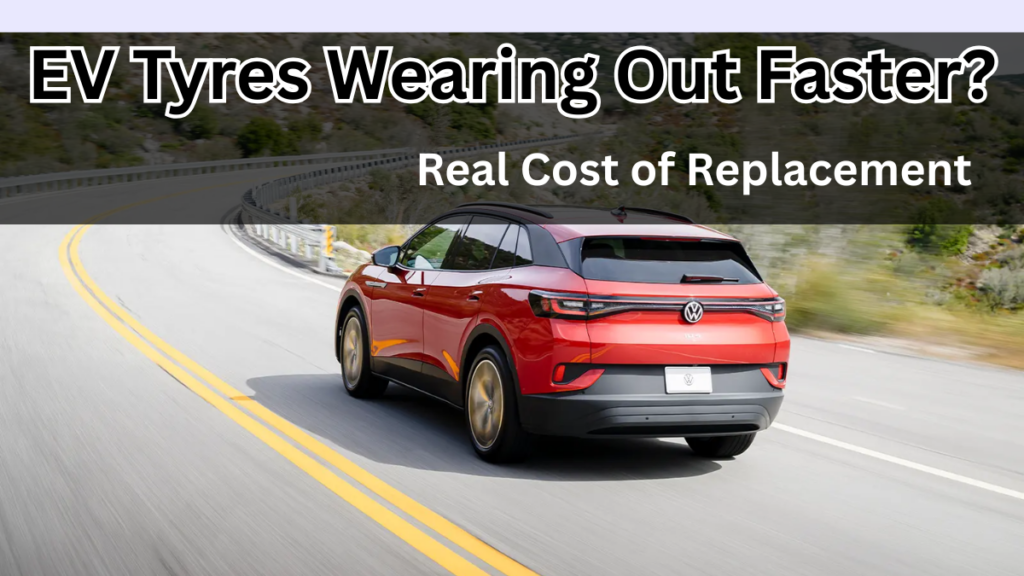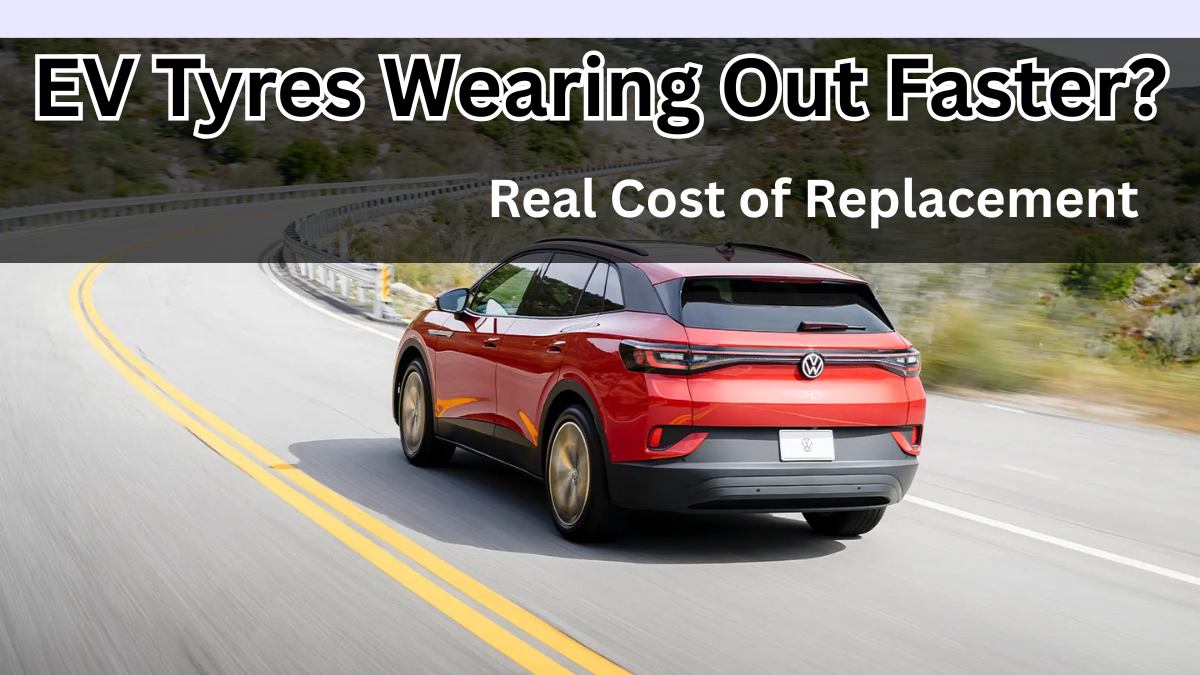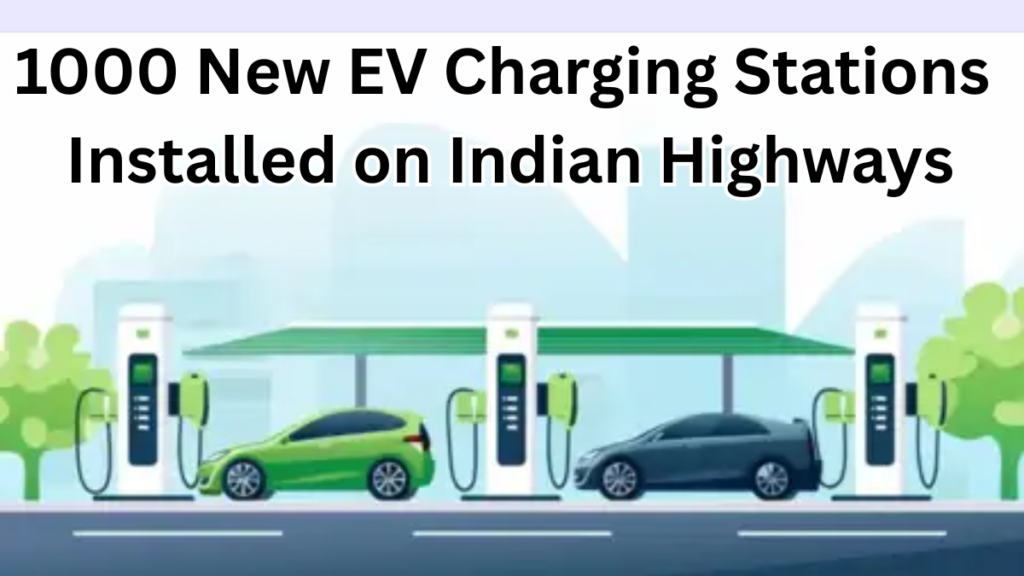Electric vehicles (EVs) are transforming the automotive landscape, but many EV owners are now facing an unexpected issue—faster tyre wear. Unlike traditional cars, electric vehicle tyre wear is proving to be a significant maintenance cost due to the unique characteristics of EVs.
Let’s explore why this is happening and what the EV tyre replacement cost looks like in 2025.

Table of Contents
Why Do EV Tyres Wear Out Faster?

EVs put extra pressure on tyres because of their build and performance features. Here’s why electric vehicle tyre wear is a growing concern:
-
Instant torque leads to quick tyre grip and faster wear.
-
Heavier battery packs increase the load on tyres.
-
Regenerative braking often results in uneven tyre wear.
-
EV-specific tyres use softer rubber compounds that offer low rolling resistance but wear out faster.
Real EV Tyre Replacement Cost in 2025
The EV tyre replacement cost in 2025 is notably higher than that for conventional cars, especially because EVs often require specialized tyres.
Average Tyre Replacement Costs by EV Segment
Vehicle Type |
Average Tyre Life (km) |
Replacement Cost Per Tyre (INR) |
|---|---|---|
Entry-Level EVs |
30,000 – 40,000 km |
₹6,000 – ₹8,000 |
Mid-Range EVs |
25,000 – 35,000 km |
₹8,000 – ₹12,000 |
Luxury & Performance EVs |
20,000 – 30,000 km |
₹15,000 – ₹25,000 |
Note: Actual costs may vary depending on tyre brand, size, and location.
Factors Driving EV Tyre Replacement Cost
Several reasons are contributing to the rising EV tyre replacement cost in 2025:
-
EVs need low-noise, high-load tyres that are more expensive.
-
EV-specific tyres are still limited in supply.
-
The tyres must support high torque and heavier builds.
Tips to Extend EV Tyre Life
Although electric vehicle tyre wear is faster, you can still follow these practices to make your tyres last longer:
-
Rotate tyres regularly to ensure even wear.
-
Maintain the recommended tyre pressure.
-
Drive smoothly, avoiding sudden acceleration and hard braking.
-
Check wheel alignment frequently to prevent uneven wear.
EV Tyres vs ICE Car Tyres: Key Differences
Feature |
EVs |
Internal Combustion Engine (ICE) Cars |
|---|---|---|
Tyre Wear Speed |
Faster |
Slower |
Average Replacement Cost |
Higher (₹6,000 – ₹25,000/tyre) |
Lower (₹4,000 – ₹12,000/tyre) |
Special Tyre Requirements |
Yes (Low-noise, high-load) |
No (Standard tyres) |
Maintenance Frequency |
More frequent |
Less frequent |
Are EV Owners Ready for the Higher Tyre Costs?
Many EV buyers are caught off guard by the EV tyre replacement cost and how quickly their tyres wear out. However, as more drivers switch to EVs, tyre manufacturers are innovating to produce more durable and cost-effective EV tyres.
FAQs
1. Why do EV tyres wear out faster than regular car tyres?
Electric vehicle tyre wear occurs more quickly because EVs deliver instant torque, carry heavier battery loads, and use regenerative braking, which collectively put extra stress on the tyres.
2. How much does EV tyre replacement cost in 2025?
The EV tyre replacement cost in 2025 typically ranges from ₹6,000 to ₹25,000 per tyre depending on the EV model and tyre specifications.
3. Can I use regular car tyres on an electric vehicle?
No, regular car tyres are not suitable for EVs. EV-specific tyres are designed to handle higher loads, instant torque, and provide reduced road noise.
4. How can I reduce electric vehicle tyre wear?
You can reduce electric vehicle tyre wear by regularly rotating tyres, maintaining proper tyre pressure, driving smoothly, and ensuring timely wheel alignments.
Click here to learn more





